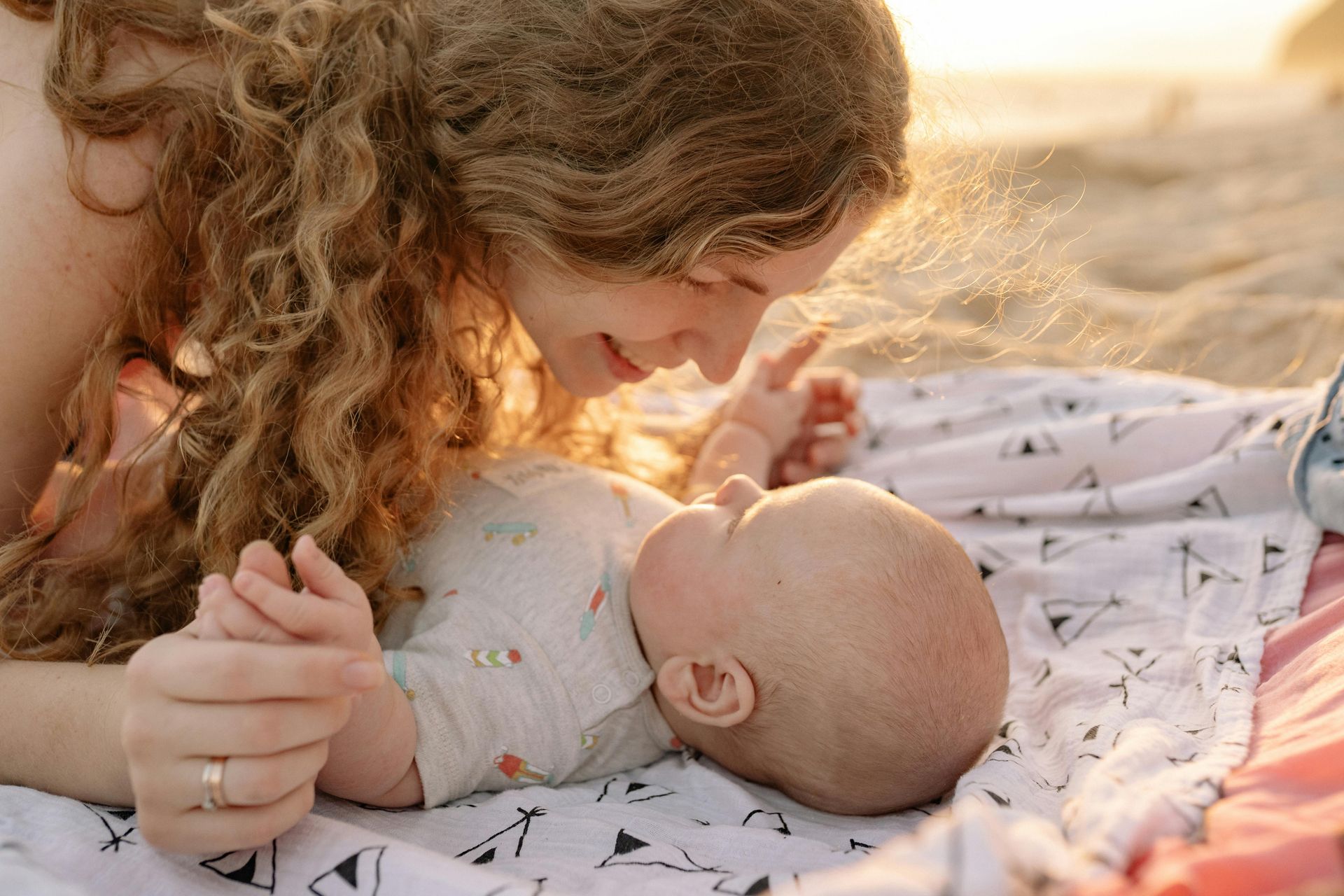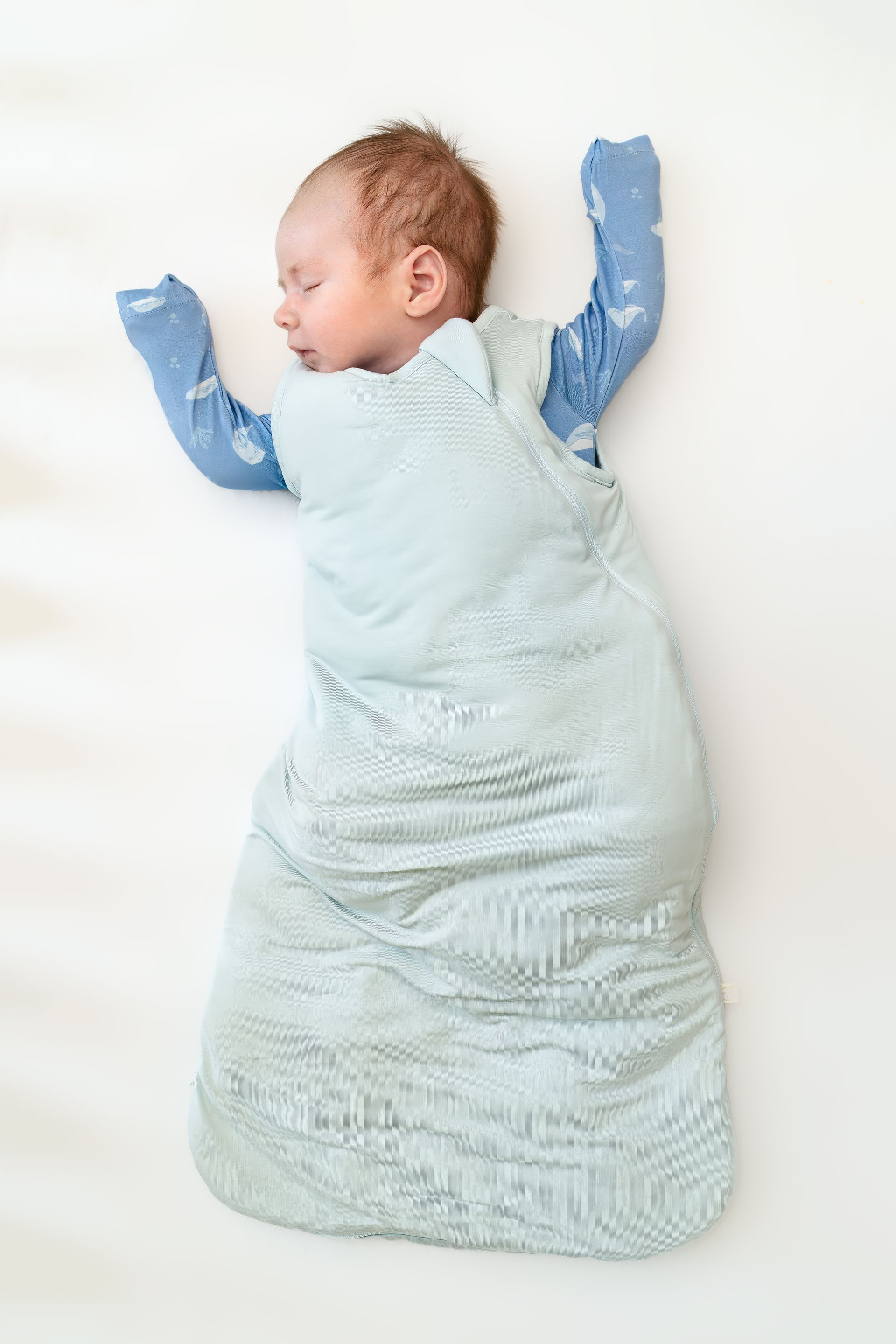Are you Team Pacifier?
lbenjell • June 8, 2022
Pacifiers (pacis, dummies, binkies or whatever you may call them) may be your best friend or worst enemy depending on the season you are going through. It feels like it might be your only chance to go to sleep or the reason you are up all night to pop it back in as it pops out of your babe’s mouth like a jack in the box. So the question is then, should you offer your baby a pacifier to begin with? As with many things I present on this blog platform, the answer really depends on you and your baby. If offering a paci is important to you, do it. If not, then there is no need. And your baby will also have an opinion regarding the topic so listen to them as well. Having said that, here are a few points to consider when making the choice.
What are the benefits of pacifiers?
Babies are born with a sucking need. Most of that is satisfied by breastfeeding or bottle feeding but for some babies, they need to continue sucking beyond that. The pacifier can be very handy in this situation as it can help satisfy the extra need for sucking and we call this non-nutritive sucking.
This non-nutritive sucking in turn helps babies recall or trigger their calming reflex. This reflex is helpful in soothing a particularly fussy baby. If your babe experiences fussy periods in the day (example purple crying period), try offering them a pacifier to help them find some calm.
In addition, research has shown that the use of a pacifier at the onset of sleep is a protective measure agains SIDS. This means that it can reduce the incidence of SIDS, even if the pacifier is not propped back in in the middle of the night.
What Pitfalls should I be on the lookout for?
While the pacifier has many advantages, it also has some pitfalls that you should be aware of. For starters, if baby comes to rely on it to fall asleep, it can interrupt night sleep if it falls out. This is especially true for infants as they are unable to place it back in their mouths independently and will then need to signal to parents to come place it back.
Each baby is different and while opinions vary on the topic, some breastfed babies have been known to experience nipple confusion after using a pacifier. If this is something you are concerned with, you may want to wait until you stabilize your breastfeeding before you introduce a pacifier.
Though rare, pacifiers have been linked to repeated incidences of ear infections. Check with your pediatrician if your baby is experiencing recurrent ear infections, you may need to drop the pacifier before you intended to.
Most children will have dropped the pacifier by the time they are 4 years old. Prolonged pacifier use can have dental implications such as teeth misalignment.
When should I introduce a pacifier?
The American Academy of Pediatrics recommends introducing the pacifier when baby is around 3 or 4 weeks old. This gives you time to stabilize breastfeeding and prevent any nipple confusion.
What if my baby hates the pacifier?
Even your best plans to use the pacifier may be foiled by your little one. They may just not like it. If this is something that's important to you, you can persist without necessarily forcing it upon your little one. Remember that babies are born with a thrust reflex which might cause them to push the pacifier away when you put it in their mouth. But they also have a sucking reflex which helps them hold on to the nipple (human or bottle/paci) and squeeze it between the roof of their mouth and tongue. Many researchers believe these two reflexes are linked, but I digress here. What I’m trying to say is that Dr. Harvey Karp (author of the Happiest Baby on the Block) recommends that you gently tug the pacifier once you place it in your baby’s mouth to activate their sucking reflex and stop their thrust reflex.
When to drop the pacifier?
I have found that there are a couple of places in baby’s early life where it is easiest to drop the pacifier. Don’t get me wrong, removing the pacifier from baby’s routine is not easy but these times are relatively easier compared to others. The first one is around 4 months of age, when baby’s circadian rhythms are developed. Baby at this age hasn't formed too many habits that are hard to change and is young enough to quickly adjust to life without the paci. This also helps in preventing the pacifier from becoming a sleep crutch/association. If you keep the pacifier beyond this point, the next easiest place to drop it is when baby is between 2 and 4 years old.
How do I go about dropping the pacifier at 4 months?
1- Cold Turkey: Drop the pacifier overnight and replace it with another way to soothe your baby to sleep such as rocking or patting. Or better yet, use this time to teach your baby to self settle and become an independent little sleeper!
2- Gradual: Slowly and over a few weeks, reduce your babe’s use of the pacifier. You can start by not offering it during the day. Then offer it only at the onset of sleep and then finally dropping it altogether.
What if I decide not to drop it at 4 months, how can I reduce the Jack in the Box effect?
If you don’t drop the pacifier when your babe is around 4 months, there will most likely be a period where you will have to replace baby’s pacifier in the middle of the night if it falls out. In this case, encourage your baby’s independence by teaching them to replace it themselves. Instead of putting it directly in their mouth, place it in their hand and then gently guide them to their mouth. Over time, you can slowly reduce your intervention and babe will be able to just place it themselves. To help them out in the middle of the night, place multiple pacis in the crib. You can also use daytime play to show baby how to grab the pacifier and put it in their mouth.
How do I drop the pacifier later (between 2 and 4 years of age)?
1- Cold Turkey: Mentally prepare baby that when they reach 3 years old for example (or any other milestone you choose), you will plant the pacifier or the pacifier fairy will come get it or we will donate the pacifier to other younger babies. But be prepared, once the fairy comes, it can’t bring it back. Consistency is your friend here.
2- Gradual: You can also do it gradually as described for younger babes. Explain to your child that at such and such age, we can only use the paci when its dark and be consistent about your decision. Then choose another change and stick with it for a few days until your baby no longer needs it.
The Paci Weaning System by Frida is also a good option to explore as it helps wean the pacifier gradually.
As you can see, there are good reasons why opinions are divided regarding the pacifier. But if what you are doing is working for you, then it is the right decision for your family!

Choosing a car seat is one of the most important decisions you’ll make as a parent. It’s not just about convenience — it’s about giving your child the best protection on every journey . In the UAE, where we drive long distances, face busy roads, and deal with extreme heat, the right car seat matters more than ever. But with so many options, how do you know which one to choose? Here are our top 4 tips to make car seat shopping easier — and safer. 1. PRIORITIZE SEATS THAT UNDERGO THE TOUGHEST CRASH TESTING Not all car seats are created equal. Many parents think if a seat is “legal,” it must be safe — but that’s not always true. ECE R44 : The most basic standard, now phased out in Europe. ECE R129 (i-Size) : Stricter testing with better head, neck, and side-impact protection. The Swedish Plus Test : The toughest crash test in the world — and the gold standard. What makes the Swedish Plus Test so important? It’s the only test that measures neck forces on a child’s body in a crash. Seats that pass prove they can keep neck loads below dangerous limits — a key factor in preventing serious injury. Many car seats fail completely under this extreme test, which shows just how high the bar is. 👉 If a car seat has passed the Swedish Plus Test , you can be confident it offers the highest level of safety for your child. 💡 Remember: Legal does not always mean safe . Go beyond the minimum. 2. CONSIDER YOUR CHILD'S HEIGHT, WEIGHT, AND AGE — EVEN THE SMALLEST ONES Every child grows differently, and size matters when it comes to safety. Preemies and smaller babies : Standard carriers often don’t provide the right fit. They need extra support for the head, neck, and body, plus proper harness positioning. Twins or multiples : Planning seating for two (or more) at once requires careful choice so every child gets the safest setup. As children grow, their height and weight percentiles determine how long a seat will last. We recommend car seats with at least a 25kg weight limit and 125cm height limit , which allow for extended rear-facing travel . Why rear-facing ? Research shows it is up to 5 times safer than forward-facing for children up to 6–7 years old. Better crash force distribution across the strongest part of the body. Superior head and neck protection , preventing the whip-forward motion that can cause spinal injury. Cocoon-like shell protection against front and side impacts. 💡 Bonus for UAE parents: The BeSafe Go Beyond with Preemie Inlay was designed with neonatal nurses to support even the tiniest babies. It features a removable wedge for better harness fit and breathable mesh fabric — keeping your baby safe and cool in our hot weather. 3. MATCH THE CAR SEAT TO YOUR CAR AND LIFESTYLE Your car seat needs to fit not just your car — but your daily routine . Multiple cars? Choose a seat that’s easy to install/uninstall. Growing family? Invest in a seat with a long lifespan that can be passed down. Seat placement? Consider if it will go behind the passenger, in the middle, or side by side with another child seat. Bigger families? Narrow but safe seats can fit 3-across or work well in 7-seaters, without compromising protection. Example from our family setup: Mummy’s car : BeSafe Flex Fix 2 for Sofia (8y) + BeSafe Stretch for Leo (5y). Daddy’s car: Axkid One3 for Leo + BeSafe Flex Fix 2 for Sofia. The Axkid One3 was chosen because Daddy often removes the seat, and installation takes under 30 seconds . 👉 Key takeaway: The “best seat” isn’t the one your friend uses — it’s the one that fits your child, your car, and your lifestyle . 4. DON'T COMPROMISE — BUY FROM A CHILD CAR SEAT SPECIALIST Buying from a specialized retailer ensures peace of mind: They recommend a seat that fits your child, car, and routine . They install it correctly and show you how. If the seat doesn’t fit, they won’t install it — and they’ll help you find one that does. They’ll reinstall it whenever you need , for example when changing cars, at no extra cost. At Safety On Board , we offer 1-1 car seat consultation and hands-on support to make sure your child rides safely every time. FINAL THOUGHTS A car seat isn’t just another baby item — it’s life-saving equipment. Whether you’re bringing home a preemie, juggling twins, or moving a big kid into a booster, the right seat + the right suppor t makes all the difference. If you’re unsure where to start, contact us and book a consultation with us. We’ll help you find the perfect fit for your child, your car, and your family. Because every child in the UAE deserves the safest ride 💛 Sophie Huang is the founder of Safety on Board , the UAE’s first child car seat specialist. She is also a mom of 2 and an internationally certified car seat expert . With a passion for keeping children as safe as possbile on UAE road, she guides parents in choosing and installing the safest car seats. Sophie believes safety can be simple, stress-free, and empowering for every parent.

There’s something magical about a beach holiday — the sound of waves, salty air, and the promise of slow days in the sun. But let’s be honest: traveling to the beach with a baby isn’t exactly a vacation unless sleep is part of the equation. Whether you're heading to a resort, renting a seaside villa, or visiting family by the coast, here’s how to set your baby up for restful sleep — so everyone gets to enjoy that ocean breeze. Step 1: Know That Sleep Needs Don’t Take a Holiday Babies are creatures of habit. Their little bodies thrive on rhythm and predictability — even on vacation. But that doesn’t mean you can’t have fun or go with the flow! It just means that your baby’s sleep needs are still there, and the better prepared you are, the easier it will be to keep things (mostly) on track. Step 2: Your Beach Baby Sleep Packing List Here’s your ultimate baby sleep packing list for a beach trip, broken down by category: Sleep Environment Essentials : Portable travel crib or bassinet – Choose one your baby is already familiar with if possible. Fitted sheets – Bring 2-3 just in case of sand, spills or spit-up. Also bring a gently used one to remind baby of home as he/she adjusts to the new sleep environment. Portable blackout blinds – Beach homes and rentals often have light, sheer curtains. White noise machine or app – Helps block out unfamiliar sounds like waves (yes, they can be loud!) or street noise. Baby monitor (if you’ll be in a larger space or stepping outside during naps). For more on the ideal sleep environment, have a read here . Comfort + Routine : Lovey or comfort object (if age-appropriate and safe for sleep). Sleep sack – Choose a breathable, summer-weight one. Favorite bedtime book – Familiarity brings comfort. Pacifiers – Always bring extras! Nightlight – A soft, warm one if needed for feeds or changes during the night. Weather + Climate Considerations : Lightweight, breathable pajamas – Think cotton or bamboo Fan – If your rental lacks good airflow or AC Bonus Tip: Have a “Nap-on-the-Go” Kit **For beach days that cut into nap time: Clip-on stroller fan Stroller or baby carrier your baby can sleep in Portable white noise machine Extra sun hats + baby-safe sunscreen (for after 6 months old) Step 3: Keep the Routine (Even on the Coast) Try to mirror your bedtime routine as closely as you can. If you usually do bath → PJs → book → feed → sleep, stick with it — even if it’s a quick version. Babies love the predictability, and it helps signal that it’s time to wind down, even in a new environment. Also, aim for naps in a darkened room when possible, especially after a stimulating beach outing. And if one nap has to happen in the stroller under a palm tree? That’s totally okay. Just go back to the routine as soon as you can. Getting There: Travel Day Tips Time your departure around naps if possible Use familiar sleep items (like the sleep sack or pacifier) during flights or drives Offer extra feeds — travel is dehydrating, especially in hot weather Keep expectations flexible – sleep may not be perfect, and that’s fine Beach trips with a baby can be full of joyful memories and restful nights — as long as you plan for sleep. With the right gear and mindset, your little one can stay well-rested and content, giving you more time to soak up the sun (or at least drink your coffee while it’s still warm!). And remember: sleep doesn’t have to fall apart just because you’re away from home. If you ever feel stuck or unsure about how to adjust things before, during, or after a trip, I’m here to help you build a personalized plan that fits your family’s travel style. Book your discovery call here .

October is SIDS Awareness Month, dedicated to raising awareness about Sudden Infant Death Syndrome. It’s a time to educate parents and caregivers on safe sleep practices that can reduce the risk and help protect our little ones.. At Hushabye, safety is at the heart of our brand. Our focus is on providing parents with safe and high-quality baby sleepwear, such as sleep bags, that offer a safer alternative to traditional blankets. What is a baby sleep bag? A baby sleep bag, also known as a wearable blanket or sleep sack, is a specially designed garment for infants and young children to wear during sleep. The primary purpose of a sleep bag is to keep the baby warm and comfortable, but it also serves as a safe and convenient alternative to traditional blankets and quilts in a crib or cot.


